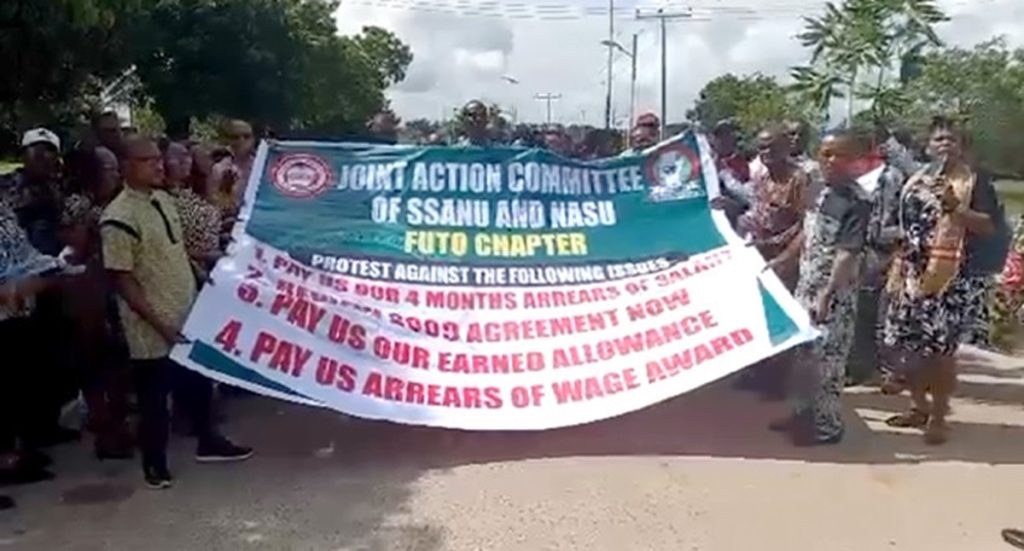Members of the Senior Staff Association of Nigerian Universities (SSANU) and the Non-Academic Staff Union of Educational and Associated Institutions (NASU) have initiated an indefinite strike across public university campuses to demand the immediate release of their salaries that have been withheld for four months.
In a statement released on Sunday and co-signed by SSANU President Mohammed Ibrahim and NASU General Secretary Peters Adeyemi, both unions expressed their disappointment that, despite multiple ultimatums given to the Government, they have not received a positive response.
The two unions directed their members in all public universities and inter-university centres across the country to “hold a joint Congress in their respective campuses on Monday, October 28, 2024, and proceed on an indefinite, comprehensive and total strike action as no concession should be given in any guise”.

On September 17, 2023, the Joint Action Committee of SSANU and NASU issued a three-week ultimatum to the Nigerian Government to pay outstanding withheld salaries of their members or face an industrial action.
Before now, the two unions had conducted multiple protests and warning strikes to air their grievances over eight months of unpaid salaries. During the strike, all administrative activities within public universities across Nigeria ground to a halt. Hostels and university gates were locked, and disgruntled non-academic staff disrupted the electricity supply.
The two unions criticised the Nigerian Government for disbursing withheld salaries to the Academic Staff Union of Universities (ASUU) while ignoring the non-academic unions.
In 2022, all the unions, including ASUU, embarked on an eight-month strike to enforce their demands for a better welfare package.
In response, the administration of then-President Muhammadu Buhari invoked a ‘No Work, No Pay policy’ against the unions, but when President Bola Tinubu assumed office, he approved the release of withheld salaries to ASUU members.
SSANU and NASU accused the Nigerian Government of unfair treatment, citing discrimination for failing to pay them their salaries like it did ASUU.
In April, Tahir Mamman, the former Minister for Education, attributed the nonpayment of the full salaries to SSANU and NASU to a “communication problem,” insisting that they were not discriminated against.


